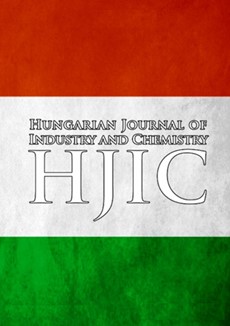Case Study of Continuous Itaconic Acid Fermentation by Aspergillus Terreus in a Bench-Scale Bioreactor
DOI:
https://doi.org/10.33927/hjic-2023-19Keywords:
bipolar membrane electrodialysis, clump morphology, integrated system, oxygen uptake rateAbstract
Itaconic acid (IA) is a highly important bioproduct. The traditional biotechnological production of organic acids generates large quantities of biomass and water streams as waste. Bipolar membrane electrodialysis is a suitable technique for directly recovering IA from clarified fermentation broth whereby itaconic acid is separated without chemical loading. As a result, the remaining diluate stream can be reintroduced into the fermentation process. This membrane operation can be integrated into a continuous fermentation process in order to carry out the process using a high glucose concentration in the effluent, opening up new possibilities for the implementation of continuous itaconic acid fermentation. In this study, a possible highly successful implementation of this technique is presented. The applied gentle stirring technique as well as the low dilution rate of 0.007 s-1 is necessary to be complemented by highly efficient oxygenation, thereby promoting itaconic acid generation. With an inlet supplying pure oxygen gas, the acid accumulated and an average of 30.1 g·L-1 titer of IA was achieved in the effluent. The volumetric oxygen uptake rate was monitored during the fermentation which fluctuated from 40-88% so further investigation of this may be worthwhile in the future.




